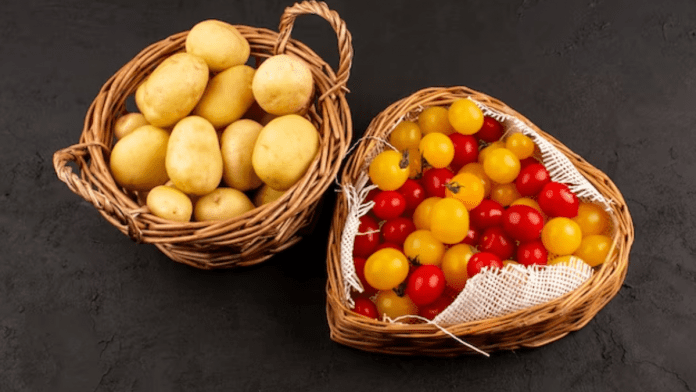News in brief:
-Â Botswana has extended and expanded restrictions on certain fresh produce imports until the end of 2025 to boost food self-sufficiency, drawing criticism from South Africa.
– The country’s new ban will start in July 2024, by which time, it expects local farmers to be able to meet domestic demand.
Botswana has announced an extension and expansion of restrictions on imports of certain fresh produce, a move that has drawn criticism from neighboring South Africa. This move aims to bolster Botswana’s food self-sufficiency and reduce its reliance on imports.
The initial ban on imported tomatoes, potatoes, onions, and other produce, implemented in January 2022, was due to expire at the end of December 2023. However, Botswana’s Ministry of Agriculture has extended the ban until the end of 2025 and expanded the list of restricted items to 32, effective from July 2024.
The ministry explained that the extended grace period until July 2024 would provide Botswana’s farmers sufficient time to increase production and meet local demand.
The country’s agricultural sector, accounting for about 5% of its economic output, faces challenges due to its drought-prone environment and competition from cheaper imports from South Africa, which previously supplied around 80% of Botswana’s food.
President Mokgweetsi Masisi, in a state of the nation address in November 2023, claimed that the initial import ban had successfully reduced Botswana’s fresh-produce import bill by 71%. He maintains that the restrictions are necessary to protect the country’s nascent agricultural industries.
However, South African farmers have expressed strong opposition to the import ban, arguing that it violates the Southern Africa Customs Union (SACU) agreement, which promotes free trade among member countries. The issue is likely to resurface in upcoming SACU meetings.
Botswana’s decision to extend and expand the import restrictions highlights the complex balance between protecting domestic industries and ensuring regional trade cooperation. While Botswana seeks to enhance its food security and reduce import costs, South Africa’s farmers face the potential loss of a significant market. Experts and analysts say the ongoing debate underscores the challenges of harmonizing national policies with regional trade agreements.



